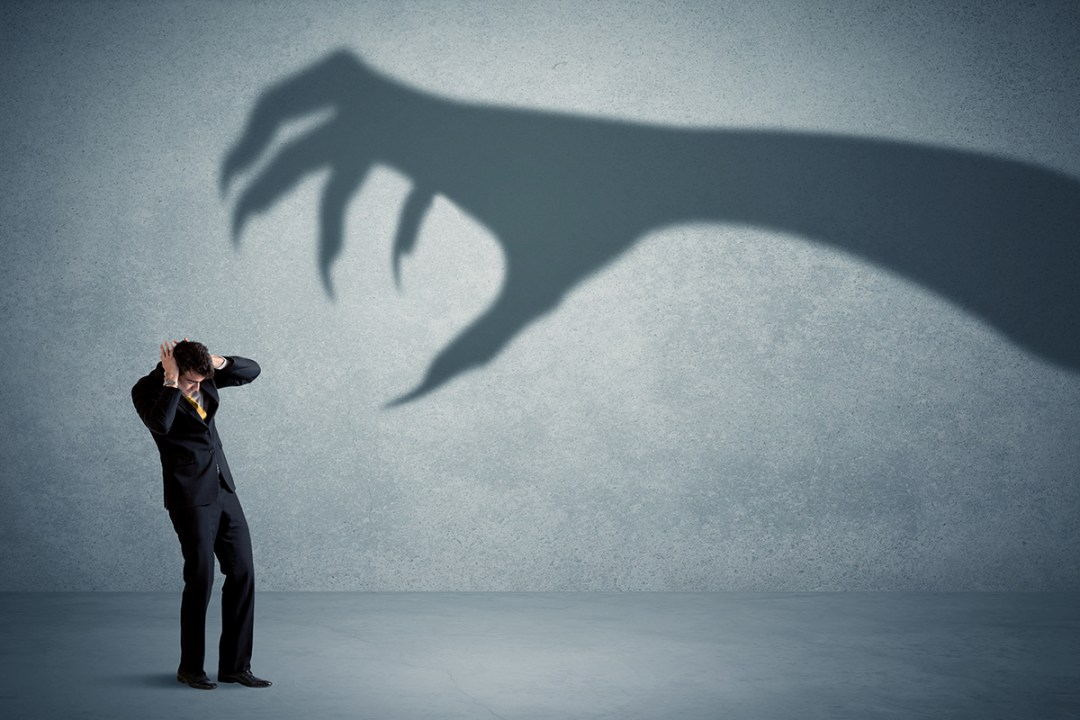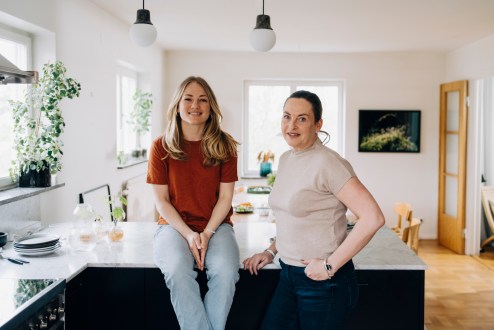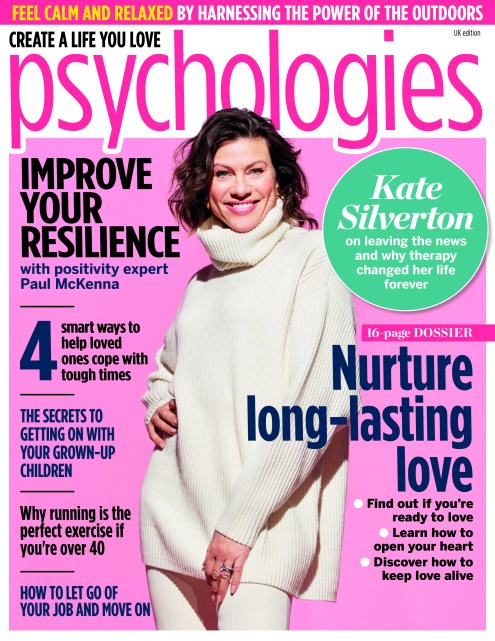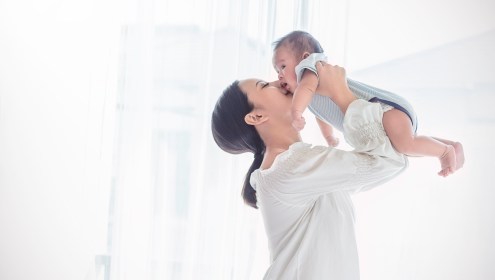Why the coronavirus crisis keeps us stuck by provoking our fear of death
The coronavirus crisis is forcing us to face something which human beings excel at avoiding. Death is the biggest taboo of them all and one which we spend a lifetime denying.

Many are writing about trauma during the COVID-19 crisis. We are in the midst of a trauma and that trauma is being triggered by many everyday things now. But I believe that what is even more important in our response to this crisis is our unconscious fear of death.
Fear of death blocks our progress
In yogic philosophy, fear of death or clinging to life is one of the five Kleshas. A klesha is an affliction, borne out of ignorance that blocks our growth. In this tradition, in order to grow as a human being and awaken to higher levels of who we are, we need to confront the kleshas and face the fear, or other negative emotions, they arouse in us.
It is said that the fear of death is the hardest one of all the kleshas to overcome, even for the wisest of sages. Because if you think about it, we are hardwired for survival. Whether that is to flee or fight, to win attention, or get validation and approval (even if this means sacrificing aspects of our self), we have an in-built life instinct that yearns to live on. These ‘survival’ mechanisms are unconscious and instinctual and are affected by our upbringing. For example, someone might learn to be passive and accommodating, putting others needs first to be the ‘good boy or girl’, because that got them approval in childhood. Therefore, as an adult, they have an unholy fear of confrontation.
Surprising manifestations
Abhinivesa, the Sanskrit word for the fear of death, manifests itself in us humans in many surprising ways. We might start participating in more risky behaviour – having an affair, tombstoning at the seaside, ignoring social distancing rules. Or perhaps we start getting very angry at people who are dropping litter or being rude. In addition, it might be that we suddenly get more creative or even try to have a baby. Conversely, we might decide we actually feel safer at home and limit our interactions with others or the world.
Death is all around
Of course, death is all around us now in a way that we cannot fail to realise. The statistics are broadcast every afternoon. The reminders are in every social distancing banner in each shop we visit.
Nevertheless, our response won’t be a conscious one. In fact, the strangest or most commonplace of our reactions during this crisis might be explained by our fear of death. Think of how many of us rushed out to hoard toilet paper!
The infinite spectrum of defence mechanisms
As human beings we are complex. Specifically, our brain is bigger and more layered than any other animal and its development spans a full quarter of our lives. We and our thinking is never linear. Survival depends on our ability to protect ourselves, psychologically, from many threats. These processes are incredibly complex in themselves. Yet are inevitably in action when our anxiety is triggered.
Racism, or any form of extreme prejudice may often have the defence mechanisms of projection or splitting at their core. Likewise, idealising charismatic leaders or celebrities.
Spirituality can be another defence mechanism
Disappearing behind a wall of armour – I am impregnable and nothing or no one gets to me – or of ‘holier-than-thou’ spirituality can be another way that we ‘act out’ to protect ourselves from the anxiety that the fear of death provokes. Making ourselves feel more important, whether that be through spirituality or through our work, means that you can feel less meaningless and vulnerable in the face of the inevitable.
Of course all of this behaviour will be justified and deeply embedded in our belief system and values. In fact, these process are so unconscious (after all they are defence mechanisms) that we may never realise what going on.
Less useful in life
Nevertheless, one thing is certain, if we cannot overcome our fear of death to some extent, we will have a less useful or fulfilling life. On some level we are often aware of these defence mechanisms. We may begin to realise that we are repeating the same problem patterns that sabotage our happiness.
Without doubt the fear of death, and the defence mechanisms that are designed to protect us, actually stop us from living. They keep us in coping or survival mode. Or at the very least, interfere with our ability to be happy.
The greatest gift
Someone once told me that working with this klesha and overcoming some of your own fear of death is the greatest gift you can give your children or your grandchildren. Think about how we parent. It is often laced with all kinds of anxiety that we inadvertently pass on to our offspring. Conversely think about how they would live if they were freer to work towards achieving their goals, without anxiety, to fully participate in a rich life. Wouldn’t that be wonderful?
How to begin to overcome the fear of death to truly live
Now you’re expecting some top tips to help you achieve that, right? I’m no expert and am not sure that I even feel worthy offering advice, but here are things that I feel have helped me along the way:
- Undertake psychotherapy (with a gifted psychotherapist) – we all have experiences in our past that have been introjected into our self to limit our self-concept. We cannot work with these on our own as they are in the hidden areas of Johari’s window. In addition, if we have early relational traumas we may need a lot of work to understand how the opposing forces of the life instinct and death instinct operate within us. This will take us to a better level from which to see beyond the patterns from our history that cloud our current experience of reality.
- Know that before we were born we did not exist – whatever your belief about life after death, before you were born you did not exist and when you die you are going back to that. Know that death itself, is not a terrifying experience as you have already come from that.
- Work hard to let go of your attachments – in yoga we call this vairagya. It is the concept of non-attachment, also fundamental to Buddhism. We get very attached to things as humans and this causes our suffering, in particular when it comes to the fear of death. We are attached to what we own, our children (we often think we own them too), our loved ones. We are attached to our body (the material thing that does the dying) and to our sense of self. If we can work with disciplines such as yoga or Buddhism and work hard at practices that help us to loosen our grip on such attachments, fear lessens.
- Live with death on your shoulder as your greatest teacher – rather than seeing death as something to be terrified of, see it as a great teacher. Live with the fact that you could die at any time. Come to terms with the fact that you are not in control of your natural ending. What would this teach you about living? About taking risks like telling someone you love them before they tell you, for instance.
- Think about your own death – rather than pretend it will never happen. Imagine yourself getting old and dying. Meditate on your body rotting in the earth or being cremated. Let those thoughts in, instead of working so hard to keep them at bay. It is only by facing our fears, that we can transcend them. By ‘being with’ difficult emotions we can go beyond them to great freedom.
- Find something to connect to that is bigger than you. It is our human inheritance to have a ‘knowing’ that there is something beyond this. Vague I know. But we all know it on some level. The trick is finding the vehicle that helps you realise this more in your life now. For some it is stoicism, others find it in nature, or Buddhism. Find a way to embrace meaning and find a philosophy that works for you (and know that it may change). I see myself as a Christian, who spent many years following the path of soto zen but my true vehicle to realisation and awakening has been raja yoga.
- See all experience as growth. Whatever comes your way, whether it is ‘good’ or ‘bad’ is there for your growth. We get pulled apart thinking this is good, that is bad. We are driven to avoid pain and seek pleasure. And when pleasure ends, and uncomfortable life situations arise again we are in a mess. If we can learn to find equanimity in all situations, we will see that there is great growth to be had in suffering. Having a faith discipline such as Christianity, yoga or Buddhism will really help with this as with most of the points here.
- Be with someone you love when they are dying – it is a privilege to be with someone you love as they are dying. They might be terrified in those last few moments and you can help them find the peace in the process. But mostly what I have found is that what our loved ones need the most from us at this time is our permission for them to go. Often people live on painfully for minutes, moments or days, beyond when they need to go, because they sense our fear of their dying. If you can be brave enough to let them go, endure both your and their fear, it is the greatest gift you can give anyone.
Why the coronavirus crisis keeps us stuck by provoking our fear of death


